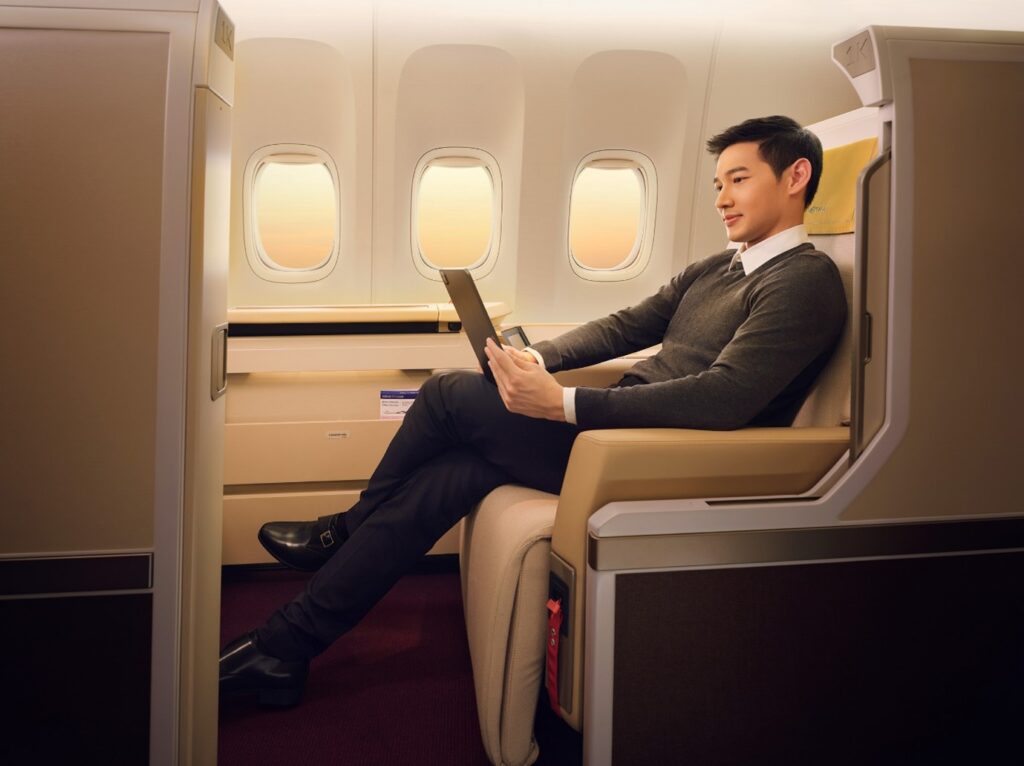
Photo courtesy: Thai Airways
Thai Airways—long celebrated for its regal first-class offering—has just revealed a bold new direction for its fleet and passenger experience. The airline will phase out first-class cabins entirely over the next two to three years, bidding farewell to suites that were once lavish enough for the Thai royal family. But for those who seek a luxurious experience at altitude, there’s good news: upgraded business class seats are coming, and the difference between first and business is becoming less pronounced than ever.
A Changing of the Guard: Royal Luxury to VIP Comfort
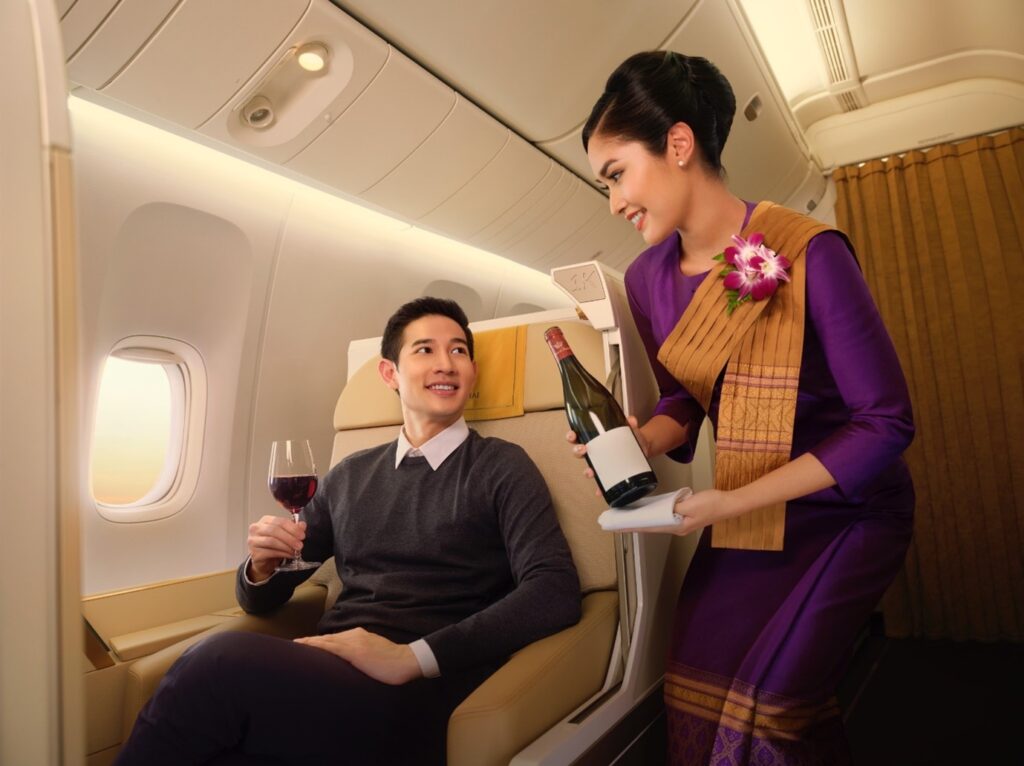
Historically, Thai Airways’ first-class service was available on flagship routes and aircraft, from the double-decker A380s to the majestic Boeing 747s and A340s. Travellers were treated to lie-flat suites, Dom Perignon champagne, and bespoke chef-crafted menus. However, with the retirement of many widebody jets and the fallout from the pandemic, first-class has dwindled to just three aircraft—serving only Bangkok to London and Tokyo.
Maintaining first-class for such limited routes has proven expensive and inefficient. The airline’s recent escape from debt restructuring prompted management to re-evaluate these signature luxuries and embrace a more streamlined, modern approach.
Fleet Modernisation and the New Era of Business Class
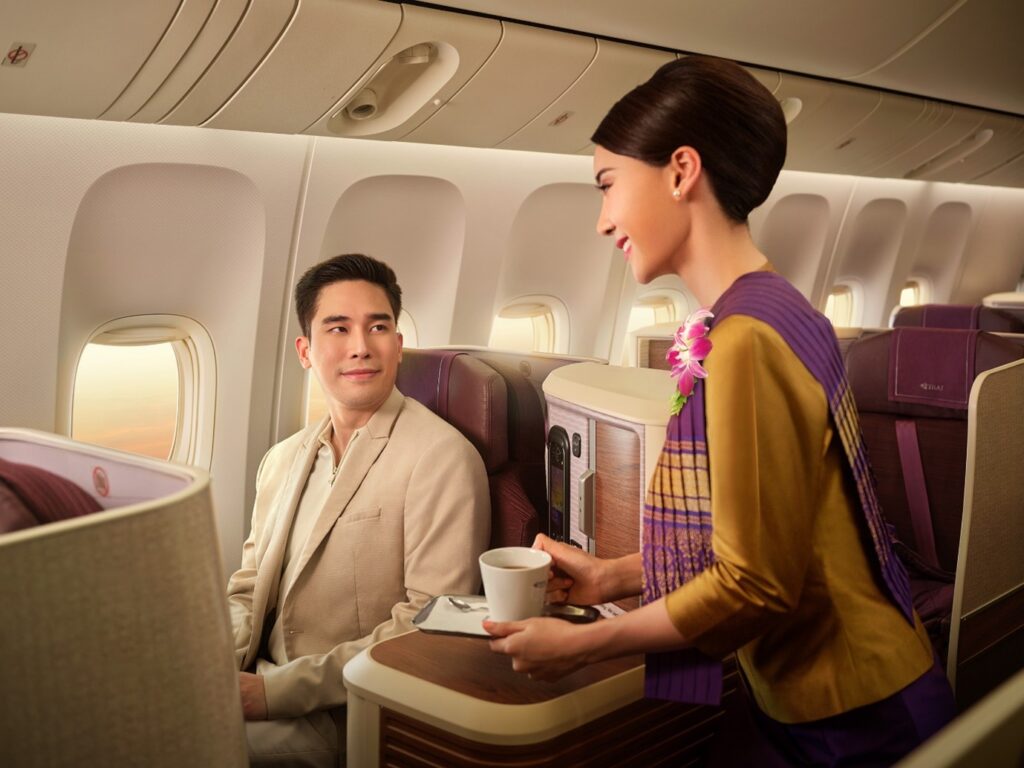
Moving forward, Thai Airways is investing in a unified, contemporary experience. The new fleet—including 45 Boeing 787-9s (to be delivered from 2028)—will feature the latest Royal Silk business class: think privacy doors, lie-flat beds, and next-level entertainment. The very front row of these suites promises an even more premium touch—almost first-class in feel, but at a business-class price point.
Retrofitting will extend across the existing Boeing 777 fleet, and upcoming Airbus A321neos, ensuring every passenger, on every route, can expect consistent comfort—whether flying regionally or across continents. Alongside business, the airline will offer premium economy and economy, standardising the product and meeting international competition head-on.
Industry Trends and Consumer Realities
Thai Airways is not alone in boldly going business. Airlines such as Air New Zealand, American Airlines, Malaysia Airlines, Oman Air, and Turkish Airlines have all already scrapped first class, choosing instead to make business the top-tier inflight experience. And with passenger preferences shifting and operating costs escalating, it’s a move that makes sense for airlines and customers alike.
Final Thought
You don’t have to look far to see how far business class has come in recent years. Many airlines now offer business suites so opulent—complete with doors, gourmet dining, and onboard service standards worthy of comparison—that the extra price for first class no longer feels justified. For many travellers, the decision to fly business is not just about value, but about access to comfort and luxury that once seemed reserved for the very few. In today’s skies, business class truly is the new gold standard.
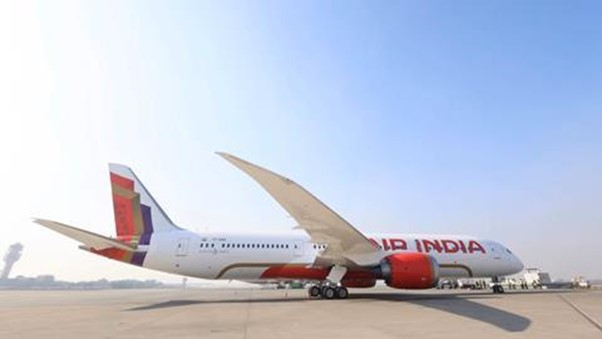 Air India Welcomes First Boeing 787-9 as A350-1000 Deliveries Loom in Record Fleet Renewal
Air India Welcomes First Boeing 787-9 as A350-1000 Deliveries Loom in Record Fleet Renewal 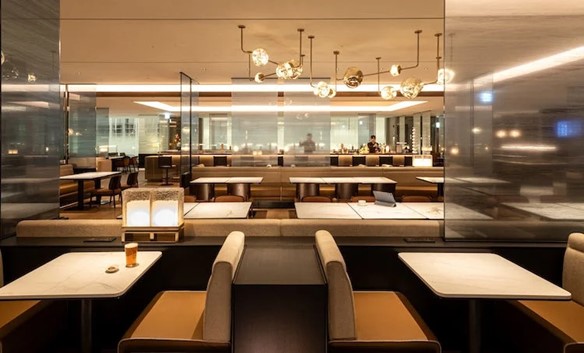 Korean Air Unveils Next-Gen Prestige Lounge at Incheon: A Ramyeon Library, Cooking Studio, and Digital Comfort Redefine the Airport Experience
Korean Air Unveils Next-Gen Prestige Lounge at Incheon: A Ramyeon Library, Cooking Studio, and Digital Comfort Redefine the Airport Experience 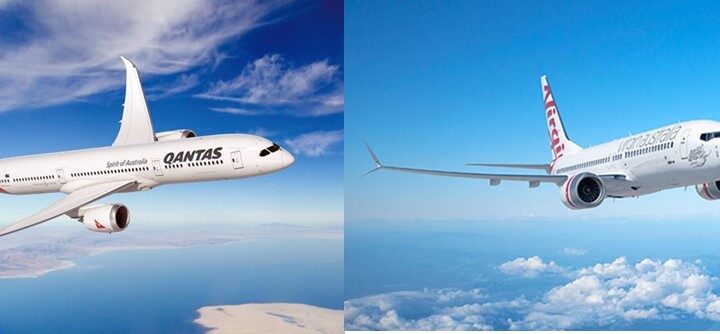 Qantas and Virgin Australia Named Among World’s Safest Airlines for 2026
Qantas and Virgin Australia Named Among World’s Safest Airlines for 2026  Emirates to Launch Daily A350 Flights from Dubai to Helsinki, Boosting Asia-Pacific Connections
Emirates to Launch Daily A350 Flights from Dubai to Helsinki, Boosting Asia-Pacific Connections  New Flights from Australia: How Fiji Airways and Finnair Are Changing the Game for 2026 Travel
New Flights from Australia: How Fiji Airways and Finnair Are Changing the Game for 2026 Travel 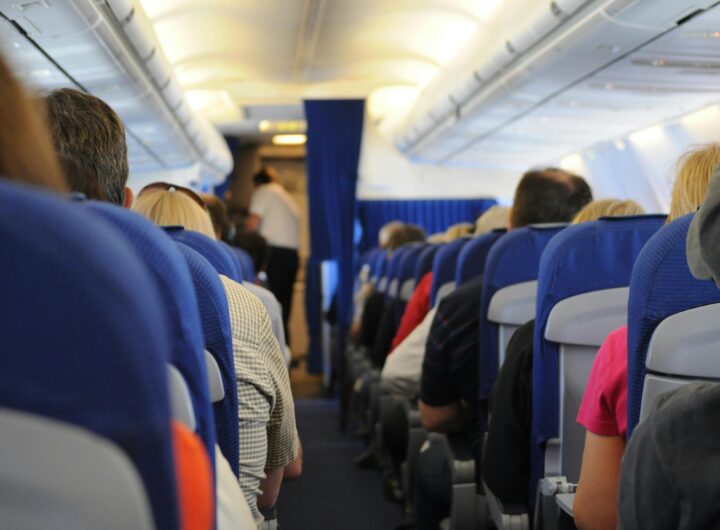 Goodbye Last‑Minute Deals: Why Planes To and From Australia Will Be Fuller Than Ever in 2026
Goodbye Last‑Minute Deals: Why Planes To and From Australia Will Be Fuller Than Ever in 2026 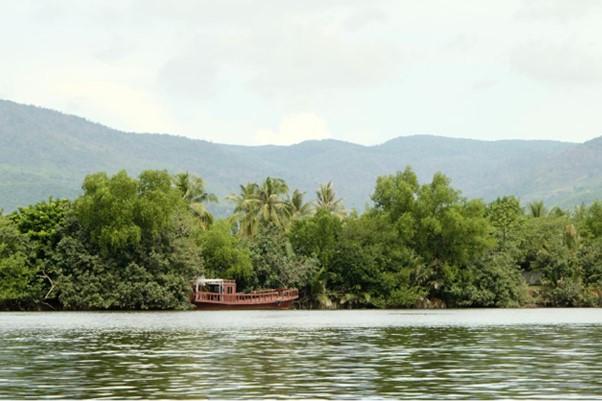 Knai Bang Chatt Launches ‘The Regenerative Stay’ to Turn 2026 Kep Holidays into Mangrove Restoration
Knai Bang Chatt Launches ‘The Regenerative Stay’ to Turn 2026 Kep Holidays into Mangrove Restoration 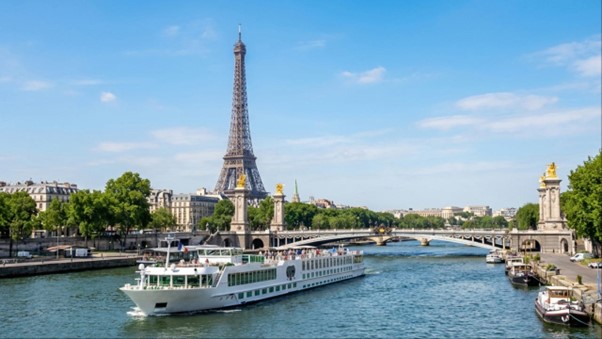 Trafalgar Harmonie to Sail the Seine in 2027 as Trafalgar Expands European River Cruise Fleet
Trafalgar Harmonie to Sail the Seine in 2027 as Trafalgar Expands European River Cruise Fleet  Ponant Explorations Group Expands in French Polynesia with Dual-Ship Deployment and New ‘Polynesian Bliss’ Voyages
Ponant Explorations Group Expands in French Polynesia with Dual-Ship Deployment and New ‘Polynesian Bliss’ Voyages 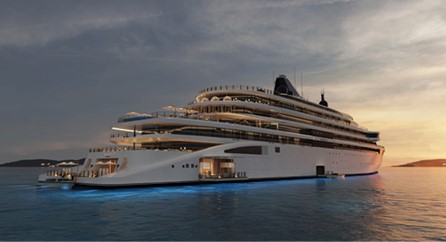 Amangati Float-Out: Aman’s Ultra-Luxury “Resort at Sea” Prepares for 2027 Mediterranean Debut
Amangati Float-Out: Aman’s Ultra-Luxury “Resort at Sea” Prepares for 2027 Mediterranean Debut 